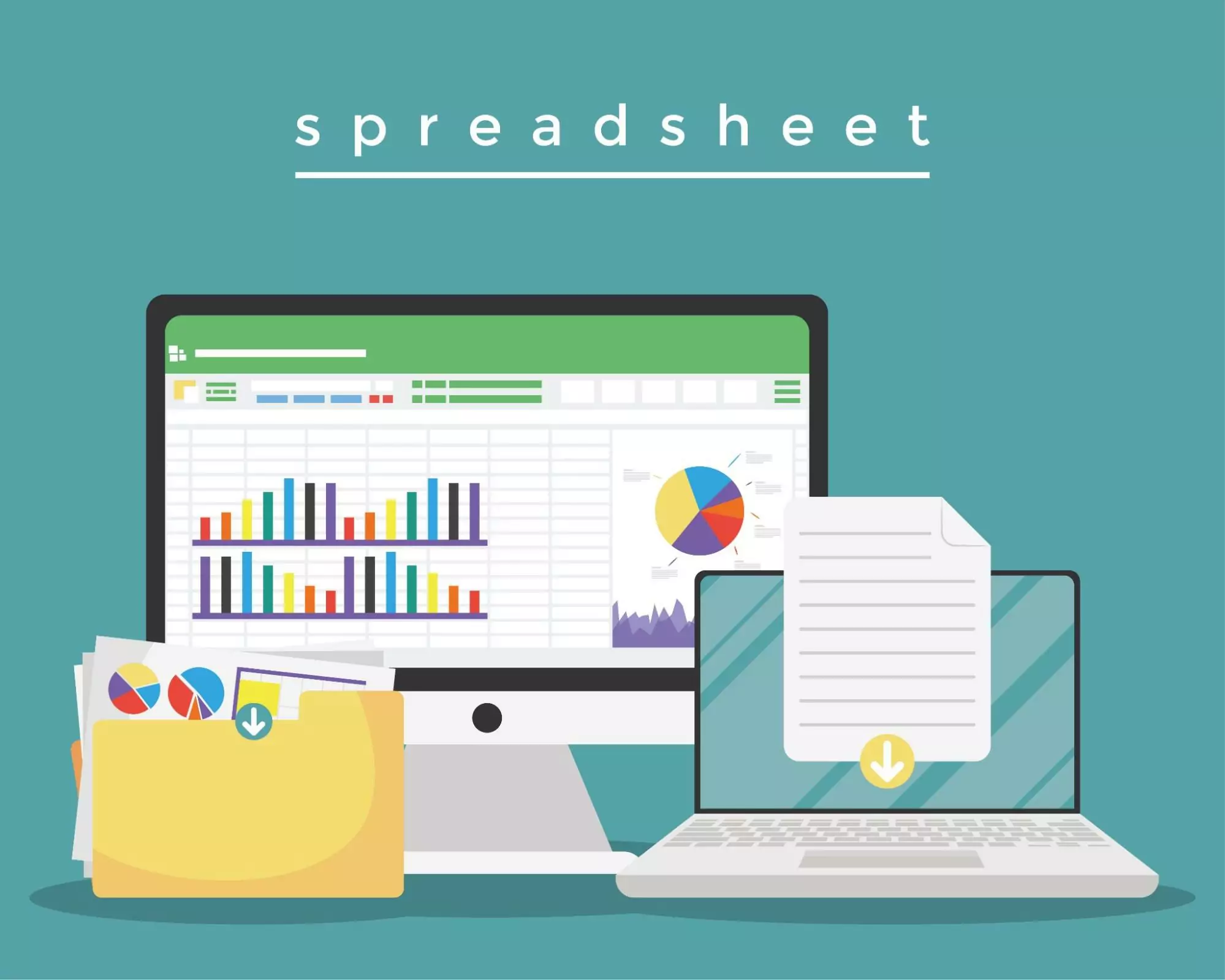Managing rental properties involves a multitude of tasks, from screening tenants and collecting rent to tracking expenses and coordinating maintenance. Without the right systems, these responsibilities can become overwhelming, consuming valuable time and potentially impacting profitability. This is where property management software becomes indispensable. It offers a centralized solution to automate workflows, gain financial clarity, and improve tenant communication.
Choosing the right software is crucial for efficiency and success. This guide provides a comprehensive top 10 rental property management software comparison to help you evaluate leading platforms based on the features that matter most.
We’ll delve into core functionalities like online rent collection, accounting, lease management, and more, offering a detailed breakdown. If you’re exploring broader options, check out this overview of rental management software.
For more guidance on essential software tools, explore our curated list of the best software for property managers.
What is property management software, and why use it?
Property management software is a digital platform designed to help you manage all aspects of your rental business. It consolidates various tasks into a single system, replacing manual processes like spreadsheets and paper files. Challenges include the time burden of administrative tasks, scaling revenue, managing tenant relationships, handling maintenance requests, controlling costs, and keeping accurate financial records.
The benefits are clear. Property management software:
- Automates repetitive tasks, reducing the administrative workload and freeing up time.
- Provides greater financial oversight through accurate expense tracking and reporting.
- Improving communication tools and online portals enhances tenant satisfaction.
- Features like online rent collection streamline payments, while automated reminders reduce late payments.
Ultimately, the right software can lead to a more organized, profitable, and scalable rental business.
If you’re a DIY landlord, you may also benefit from using free landlord software to simplify management tasks without upfront costs.
Free All-in-One Property Management Software
Online banking, rent collection, accounting and more-all in one place.
How we evaluated the top software options
Choosing the top property management software companies comes down to your specific needs, like how many properties you manage, your budget, and the features that matter most to you. For this property portfolio management software features comparison, we focused on platforms commonly highlighted in property management software reviews and industry roundups.
We evaluated each option based on how well this software handles essential tasks like:
- Online rent collection
- Lease management
- Automated rent reminders
- Prorated rent calculations
- Tenant screening
- Expense tracking
- Bookkeeping and accounting
- Security deposit management
- No monthly software fees (where applicable)
- Owner disbursements
- Tenant portal
- Document storage
- Maintenance request tracking
- Mobile-friendly platform
- Integrated banking
We also considered factors like:
- Ease of use
- Customer support options
- Suitability for different portfolio sizes and property types
If you’re looking for budget-friendly options, see our guide on property management software free solutions. If you’re managing apartment buildings, check out our full guide on multifamily property management software to evaluate tools designed for more complex portfolios.
To better understand the difference between managing software yourself and outsourcing, see our comparison of rental property software for small landlords and property management for private landlords.
Top property management software comparison
Here is a look at some leading property management software options based on the provided research, highlighting their key features and ideal use cases. Finding the best software for property managers often comes down to aligning features with operational needs. Below, we’ll compare property management companies to help you find the right one for you.
1. Baselane
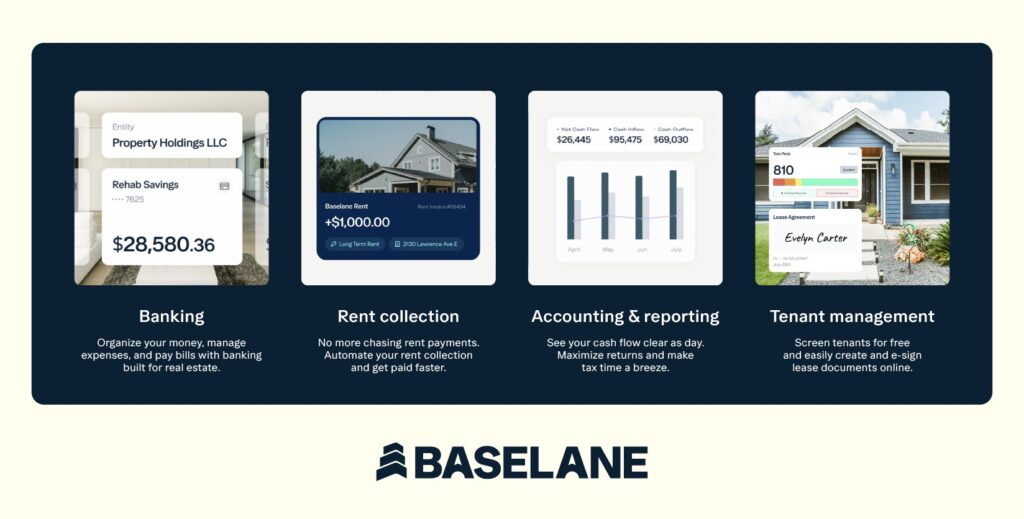
Baselane is an all-in-one financial and property management software platform designed for independent landlords and real estate investors, combining robust banking, rent collection, and bookkeeping features with built-in automations for reducing manual tasks, saving investors 150 hours and $5,000 per year.
Key features
- Online rent collection: Automates payments, reminders, and late fees, with a secure portal for tenants to pay via ACH or credit/debit card, helping you maintain steady, on-time income.
- Landlord banking: Open unlimited accounts per property for multiple entities under one login and earn up to 3.35% APY² with zero monthly fees or minimums.
- Automated bookkeeping: Sync transactions from linked bank accounts and cards, then auto-categorize them by property and Schedule E tax line items.
- Cash flow insights: View real-time income and expense reporting at the property level to monitor profitability and make informed decisions.
- Tenant screening: Get instant background checks, including credit, eviction, criminal, and income history.
- Digital leases: Draft, send, and e-sign lease agreements without printing or scanning.
- Insurance options: Choose landlord protection coverage and offer tenants access to renters insurance—all within the platform.
- Rental property loans: Apply for financing solutions across multiple investment strategies, including long-term holds and fix-and-flip projects.
Pros
- Intuitive design with automated tools built for landlords
- End-to-end rental management in one place
- Banking with no monthly account fees and competitive rates
Cons
- Mobile app currently in development
- Tenant messaging capabilities not yet available
Price
Baselane is completely free to use.
2. Buildium
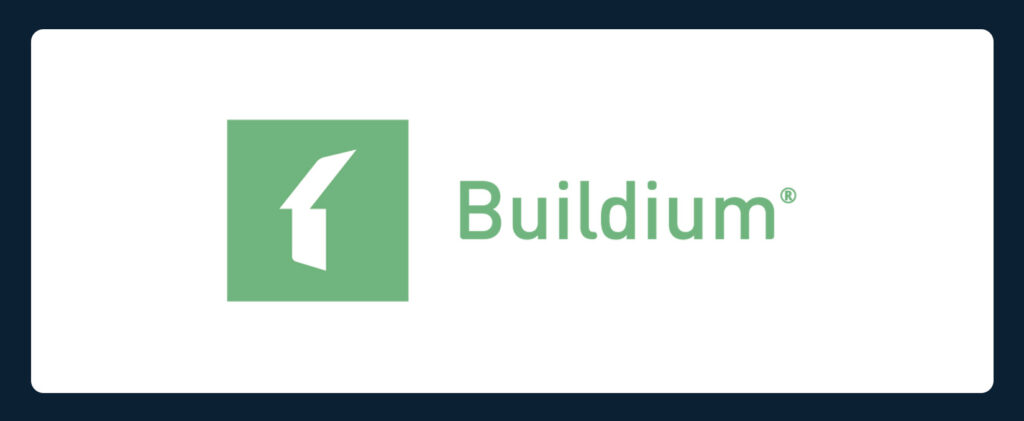
Buildium is a widely used cloud-based software for property management for private landlords. It’s often featured in lists of top options.
Key features
- Expense tracking and financial reporting tools
- Maintenance request processing and vendor coordination
- Rent collection and automated reminders
Pros
- Easy-to-navigate interface suited for property managers
- Mobile app for managing on the go
- Customer support team known for timely responses
Cons
- Reporting features may lack depth for advanced users
- Higher pricing may not be ideal for landlords scaling up
Price
Plans start at $58/month for the Essential package, $183/month for Growth, and $375/month for the Premium tier.
3. AppFolio
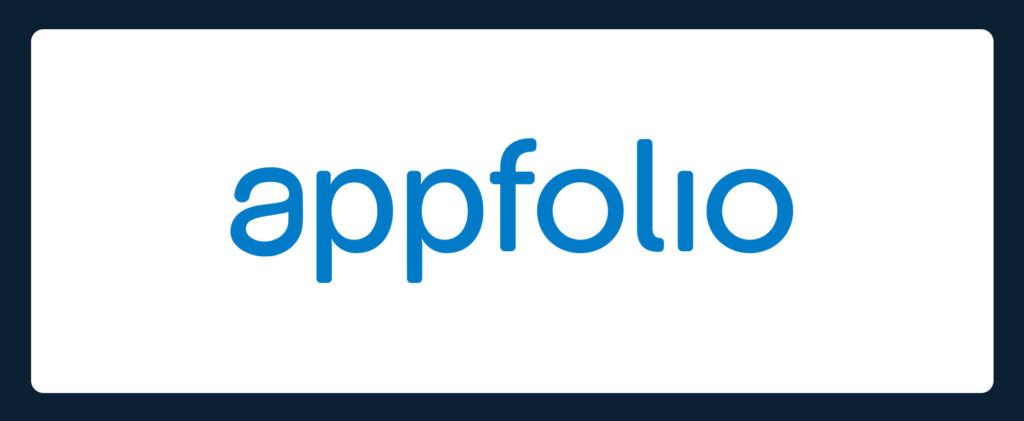
AppFolio is another prominent name in the property management software space, often catering to larger businesses.
Key features
- Tools for advertising rentals and managing lease agreements
- Online rent payments with automated processing
- Maintenance request tracking and work order management
Pros
- Customizable reports to suit various business needs
- Mobile-friendly access for landlords, tenants, and contractors
- Multiple support channels for user assistance
Cons
- More advanced features can have a learning curve
- Some customization options are only available in premium plans
Price
Pricing falls between $1.49 and $5 per unit/month, with a $280 minimum monthly fee.
4. Yardi
Yardi offers a wide range of property management solutions, often targeting larger enterprises and specific property types like commercial or affordable housing. A property management system comparison often includes Yardi for its comprehensive offerings.
Key features
- Accounting and financial reporting
- Lease administration and tenant tracking
- Maintenance request management
Pros
- Scalable for large and complex portfolios
- Tailored solutions for various property types
- Extensive reporting and customization options
Cons
- Requires onboarding and training due to system complexity
- Pricing is custom and may not suit smaller operators
Price
Pricing is $3 per unit per month with a $400 monthly minimum.
5. Stessa

Stessa is known for its focus on financial tracking and reporting for rental properties.
Key features
- Online rent payments with automated late fee settings
- Income and expense tracking for rental properties
- Receipt upload and expense documentation
Pros
- Free plan offers foundational tools for property management
- User-friendly dashboard with simple navigation
- No limit on the number of properties you can manage
Cons
- Entry-level plans include limited customer support
- Offers fewer automation tools compared to other platforms
Price
- A free plan is available, with paid plans ranging from $12 to $28/month based on selected features.
6. Avail

Avail is an alternative rental property financial software, offering tools for marketing, tenant screening, and lease management. While it includes options for rent collection and maintenance tracking, the cost can add up for those managing multiple units due to per-unit pricing on the premium plan.
Key features
- Distributes rental listings to major websites
- Customizable lease templates with electronic signing
- Credit, criminal, and background checks for applicants
Pros
- Free tier available for basic management needs
- Clean, user-friendly interface
- Screening tools included across all plans (tenant-paid fees may apply)
Cons
- Lacks in-depth accounting and reporting features
- Some advanced tools require an upgrade to access
Price
Offers a free basic plan; premium access starts at $9 per unit/month.
7. Landlord Studio
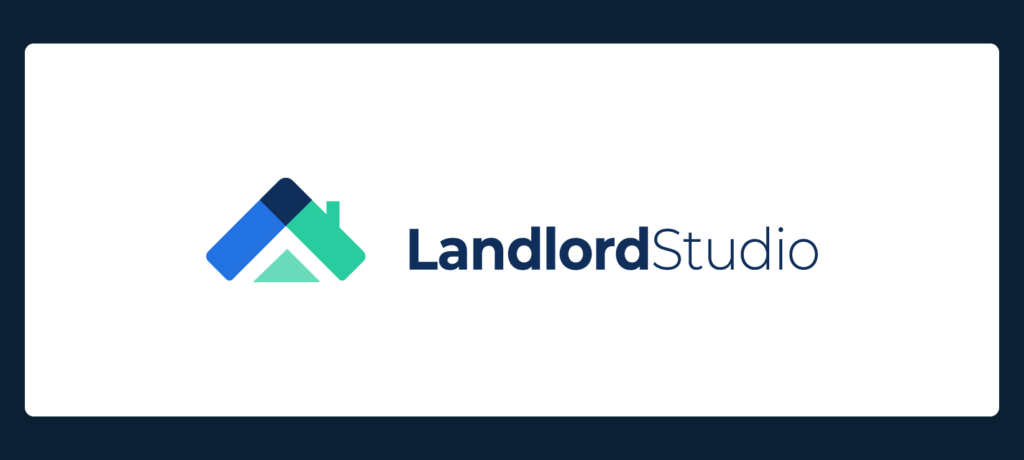
Landlord Studio is a mobile-first rental management app tailored for small landlords. It offers tools to track expenses, collect rent, and manage property listings. While the free plan works well for smaller portfolios, features like banking integration and advanced reporting are only available on paid plans.
Key features
- Scan and store receipts for expense tracking
- Accept online rent payments and send automated reminders
- Log mileage for property-related travel and tax purposes
Pros
- Designed for mobile use, ideal for on-the-go landlords
- Built-in tools for financial reporting and recordkeeping
- Quick and easy setup process
Cons
- Rent payment processing may take a few business days
- Limited options for direct communication with tenants
Price
Free for up to 3 properties. Pro plans start at $12/month, with Pro Plus at $28/month, both covering 3 units. Additional units cost $1/month each.
9. PropertyWare
Propertyware is built for managing larger single-family rental portfolios and offers robust tools for financial tracking, maintenance coordination, and tenant screening. While it’s highly customizable and scalable, its complexity and high monthly minimum may not be ideal for smaller landlords.
Key features
- Dedicated portals for tenants and owners
- Customizable dashboards and workflow automation
- Maintenance tracking and service request management
Pros
- Handles large, multi-location portfolios
- Offers flexibility through extensive customization
- Open API allows for third-party integrations
Cons
- Higher monthly cost compared to other platforms
- Steeper learning curve, especially for newer users
Price
Pricing ranges from $1–$2 per unit, with a minimum monthly fee between $250 and $450.
10. TurboTenant

TurboTenant is an online platform focused on tenant management and property marketing. It provides tools for listing rentals, handling tenant applications, conducting background checks, and managing leases and payments. While the core features are available at no cost, advanced functionality typically requires upgrading to a paid plan.
Key features
- Advertises listings across major platforms like Zillow and Realtor.com
- Offers both digital and printable rental applications
- Provides lease templates with e-signature support
Pros
- Free plan includes essential tenant management tools
- Simple interface ideal for DIY landlords
- Unlimited property listings allowed on all plans
Cons
- Premium features and add-ons can raise overall costs
- Reporting capabilities are more limited than on some alternatives
Price
Free basic plan available; premium features range from $9.92 to $12.42/month.
If you’re specifically focused on payment collection tools, consider platforms featured in our roundup of the best apps for landlords to collect rent.
Also, explore our list of tools for landlords to ensure you’re equipped beyond just software.
A comparison of the top property management software
The best way to evaluate your options is through a clear, side-by-side view. The property management software comparison chart below highlights the availability of key features across the platforms mentioned. This best property management comparison is based on available research, though keep in mind that the depth and execution of each feature can vary by provider.
| Feature | Baselane | Buildium | AppFolio | Yardi | Stessa | Avail | Landlord Studio | Rent Manager | PropertyWare | TurboTenant |
|---|---|---|---|---|---|---|---|---|---|---|
| Online Rent Collection | ||||||||||
| Lease Management | Basic* | |||||||||
| Automated Rent Reminders | ||||||||||
| Prorated Rent Calculations | ||||||||||
| Tenant Screening | ||||||||||
| Expense Tracking | Basic | |||||||||
| Bookkeeping and Accounting | Basic | |||||||||
| Security Deposit Management | ||||||||||
| Monthly Software Fees | ||||||||||
| Tenant Portal | ||||||||||
| Document Storage | Limited | |||||||||
| Maintenance Request Tracking | ||||||||||
| Integrated Banking |
This chart provides a snapshot of core features across leading platforms, making it easier to compare property management software side by side. If you’re evaluating tools for your portfolio, using a property management software ideal for comparison can help you quickly identify the right fit based on your specific needs.
If you’re prioritizing financial automation, understanding the digital banking benefits and how to set up a landlord bank account is equally important.
Also, when comparing accounting capabilities, see our picks for the best accounting software for rental properties to match your bookkeeping needs.
Choosing the right software for your needs
Choosing the right solution from the top apartment management software options comes down to your unique operational needs and goals. There’s no one-size-fits-all answer—the best platform is the one that fits your business model and helps you manage properties more efficiently.
Consider your portfolio size and type
A landlord managing a few single-family homes will have different requirements than a company managing large multifamily properties or commercial spaces. Finding the right multifamily property management software involves looking at features supporting complex leases, shared expenses, and resident communication at scale.
For those starting, exploring property management software free options can be a good first step. Beyond paid platforms, there are also valuable free landlord software options available.
Think about the features that are absolute must-haves
Do you primarily need help with financials, or is streamlining communication and maintenance requests more critical? Are you looking for a platform that simplifies legal aspects like leases and tenant screening, or do you have existing systems in place? Having the right tools for landlords is essential for efficient operations.
Pricing is another major factor
Platforms range from completely free to tiered subscriptions based on unit count, or even custom enterprise pricing. Understanding typical property management fees helps set expectations when considering software costs.
A thorough property management software price comparison should consider not just the monthly fee but also setup costs, transaction fees (especially for online payments), and any extra charges for premium features like tenant screening or e-signatures. This helps in a comprehensive property management system comparison.
Finally, consider customer support and ease of use
Will you or your team require extensive training, or can you get up and running quickly? What kind of support is available if you encounter issues? Evaluating property management software customer support comparison can save headaches down the line.
Pricing models explained
Property management software pricing varies significantly. Common models include:
- Free: Basic versions offering core features, often limited by the number of units or advanced capabilities. These are great for very small portfolios or those just starting. Looking for the best free property management comparison can help identify these options.
- Per-unit pricing: The monthly fee is based on the number of units you manage. This is common and scales with your business, but costs can add up for large portfolios.
- Tiered pricing: Different plans unlock different feature sets, usually based on a range of units (e.g., up to 10 units, 11–50 units, 51–200 units).
- Flat fee: A fixed monthly price regardless of unit count, often for a specific feature set or limited number of users.
- Custom pricing: Typically for enterprise-level solutions or very large portfolios, requiring a direct quote from the vendor.
When performing a comparison of property management fees, always look beyond the advertised price to understand exactly what’s included in each tier and what additional fees might apply. Some platforms might offer a low monthly fee but charge per transaction for online payments, while others might bundle everything into a higher subscription cost.
If you’re weighing software costs against overall profitability, it’s helpful to understand property management fees and how software can reduce those long-term.
The future of property management software
The property management software market is constantly evolving, driven by technological advancements and changing user expectations. Trends point towards further integration of services, increased automation through AI, and enhanced mobile capabilities.
Expect to see more platforms incorporating features like:
- Predictive maintenance
- Smart home integration
- Advanced analytics
These will help optimize operations and resident experiences. As your portfolio grows, you might look towards advanced property management solutions that leverage these emerging technologies. The goal is to create increasingly seamless, data-driven, and efficient workflows for landlords and managers.
Simplify and automate property management with Baselane
Selecting the right platform from the top property management software companies can make a big impact, helping you simplify operations, boost cash flow, and offer a better tenant experience. This comparison of property management software highlights how platforms vary in features, pricing, and audience, from enterprise-level tools to solutions built for individual landlords.
If you’re searching through a list of property management software and want a comprehensive, cost-effective option, Baselane is worth exploring. It combines free rent collection, high-yield landlord banking, automated bookkeeping, cash flow insights, and built-in tools for tenant screening, digital leases, insurance, and more, all without monthly software fees.
Whether you’re comparing features or trying to compare property management fees, Baselane delivers powerful tools without the extra cost.
Ready to streamline your rental operations? Try Baselane for free today.
FAQs
Baselane is a top choice for landlords and small-to-mid-sized property managers looking for an all-in-one platform with built-in banking, rent collection, and financial automation.
Yes, some platforms like Baselane offer core features with no monthly software fees. Others, like Avail and Stessa, offer free tiers with limitations.
Essential features typically include online rent collection, expense tracking, bookkeeping, a tenant portal, and maintenance request tracking. Other important features are lease management, tenant screening, and robust reporting.
Costs vary widely based on pricing model and features, ranging from free options to hundreds or thousands of dollars per month for large portfolios or enterprise solutions. Pricing can be per unit, tiered, or a flat fee.
The terms are often used interchangeably. "Property management software" is a broad term, while "rental property software" often specifically refers to tools for managing residential rentals, particularly favored by independent landlords or those managing smaller portfolios.




